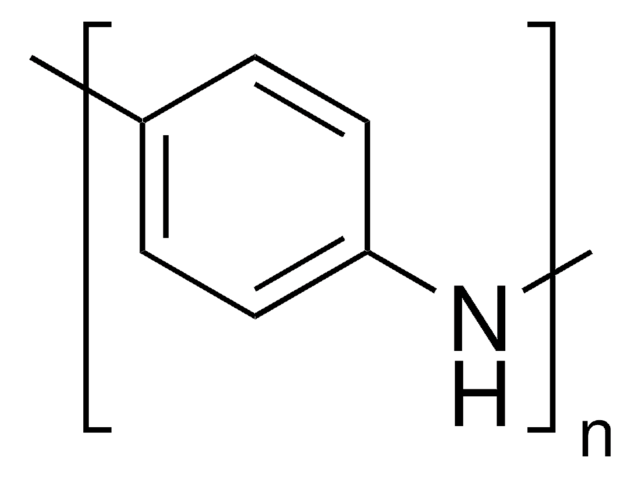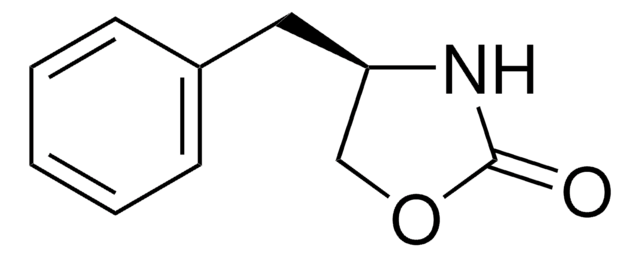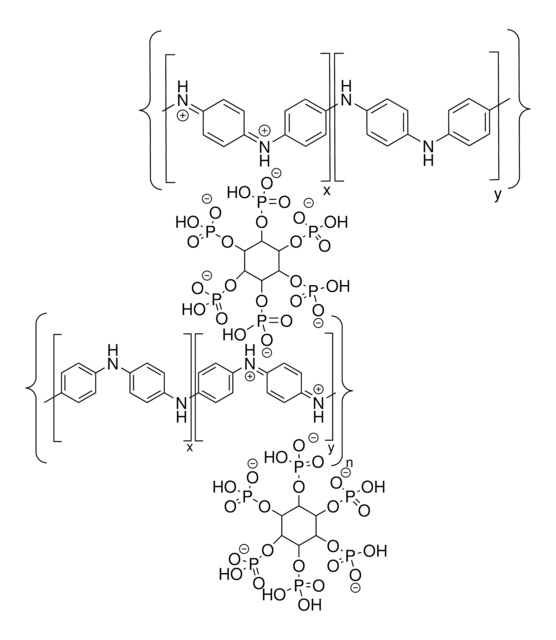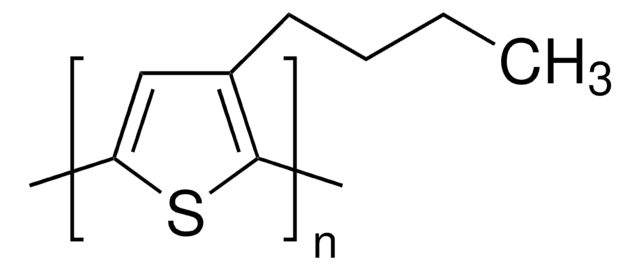476706
Polyaniline (emeraldine base)
average Mw ~10,000
Synonym(s):
Emeraldine base polyaniline
About This Item
Recommended Products
mol wt
average Mw ~10,000
Quality Level
solubility
m-cresol: soluble
DMAC: soluble
DMF: soluble
DMSO: soluble
NMP: soluble
SMILES string
Brc1nn[nH]c1C.Cl
InChI
1S/C3H4BrN3.ClH/c1-2-3(4)6-7-5-2;/h1H3,(H,5,6,7);1H
InChI key
LYCWKZFKTMHXQA-UHFFFAOYSA-N
Looking for similar products? Visit Product Comparison Guide
Related Categories
General description
Application
Features and Benefits
Storage Class Code
11 - Combustible Solids
WGK
WGK 3
Flash Point(F)
Not applicable
Flash Point(C)
Not applicable
Personal Protective Equipment
Choose from one of the most recent versions:
Already Own This Product?
Find documentation for the products that you have recently purchased in the Document Library.
Customers Also Viewed
Articles
Dr. Tan and researcher introduce recent trends in Self-healing Soft Electronic Materials and Devices. The emergence of smart, functional SHPs will be highly beneficial to the advancement of the next-generation self-healing soft electronic devices. Autonomously self-healing devices could help to minimize the need for repair or replacement of electronics and machines, potentially reducing the cost of materials and reducing electronic waste.
Global Trade Item Number
| SKU | GTIN |
|---|---|
| 476706-10G | 4061833598702 |
| 476706-50G | 4061833482865 |
Our team of scientists has experience in all areas of research including Life Science, Material Science, Chemical Synthesis, Chromatography, Analytical and many others.
Contact Technical Service





